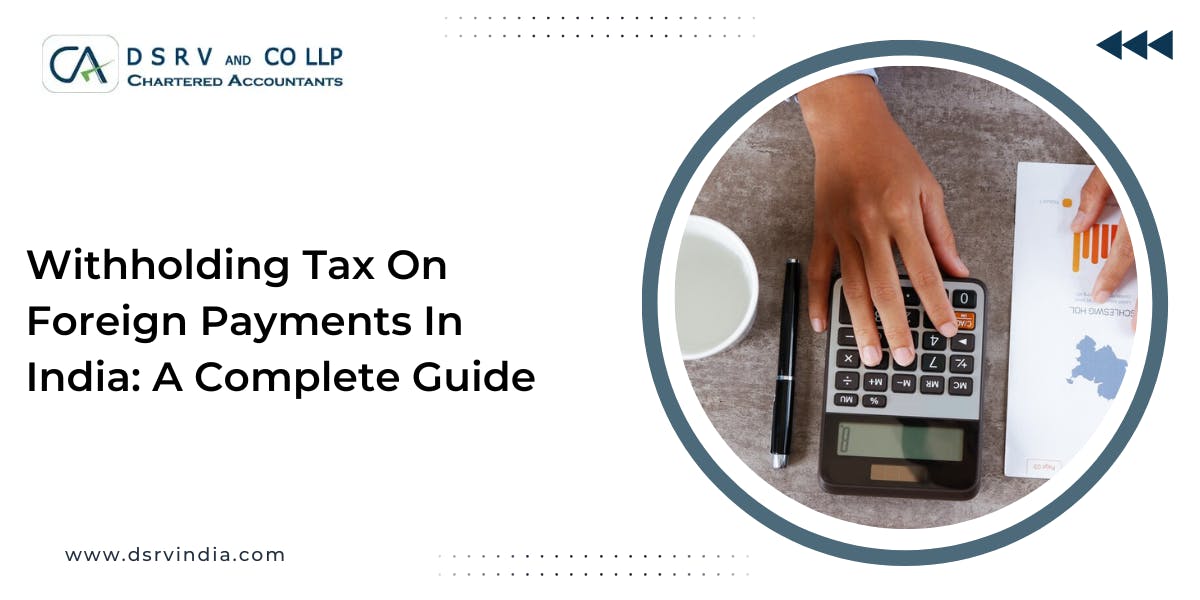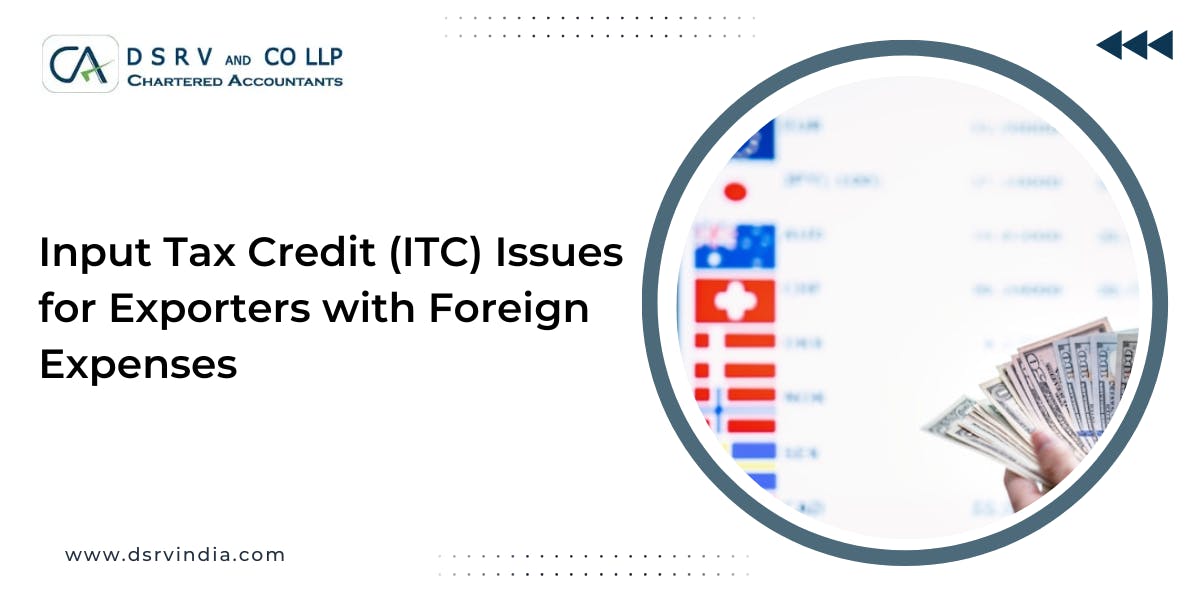Withholding Tax In India For Non Residents: What Is It?
According to the Income Tax Act, Section 195, the payer is responsible for withholding tax for certain payments made to a non-resident of India. These payments include rent, commissions, services, salary, and a lot more.
In other words, a payer is responsible to deduct tax from any payments made to a person residing outside India or who is not an Indian. Thus, the payer has to deposit the deducted tax rate to the government of India before making the payment. This withholding tax rate depends on various factors including income, technical services fees, non resident tax planning services of the country, and laws of the tax authorities.
Therefore, the withholding tax payment is collected by the central government of India. Now, that you know, what withholding tax in India for foreign payments is. We as one of the top chartered accountant firms in Gurgaon, shall guide you through the withholding tax on foreign payments in India benefits in the next segment of this blog. Read on!
Recommended: The obligations on Non-Residents Of India To File Tax Return
Top 5 Benefits For India Withholding Tax For Foreign Payments
While, there are various benefits of withholding tax on foreign payments in India. Here are the top 5 benefits that include -
1. Early Generation Of Revenue
Withholding tax on foreign payments in India helps the government maintain a steady cash flow all round the year. As, the payer submits the tax deduction from the payment to non-resident immediately. Therefore, the government does not have to wait for year-end tax filing revenue at all.
2. Reduction Of Tax Evasion
While, non-residents evading tax is a major issue. But the same is not true for withholding tax India foreign payments. As, the government receives tax from the payer at the income level, the non-residents cannot avoid tax filing returns for their share in the country.
3. Improved Financial Transparency
Withholding tax rates for payments brings more transparency to the table with financial dealings as every part of the transactions is scrutinized under the tax scanner. As a result, the payer has to correctly deduct tax and deposit it with the government, ensuring transparency.
4. Smooth Administration Of Tax Deduction
Withholding tax is a safety net that ensures that the government of India does not need to chase down every non-resident to clear their tax dues. It reduces the burden on the tax collection system and ensures proper legal compliance.
5. Investment Encouragement
The withholding tax system provides a clear and upfront picture of the tax system of the country. Which makes it more likely, for the investors to know their tax obligations. For this reason, it encourages non-residents to invest in the country knowing certain tax levels that they need to pay on their income.
What Are The Tax Implications Levied For Non-Resident Payments?
In the Budget address of 2023, it was announced by the Finance Minister of India that TCS for non-residential remittances would hike from 5% to 20% on the total transaction amount. This decision has become effective from October 01, 2023.
So, if you want to know, what foreign remittances are applicable on which a payer sends money to a non-resident from India. Here it is -
- Packages Of Foreign Tours
- Shopping from an overseas website
- Investment in foreign instruments or assets
- Indian companies purchasing stocks from foreign companies
- Sending, money, loans, or gifts to relatives residing outside of India
- Property purchase, and
- Immigrants send money to their bank accounts outside India.
Different Withholding Tax Rates Applicable For Non-Resident Payments
Now, returning to the withholding tax on foreign payments in India rates, it varies from country to country. Several factors influence the tax rates, like the non-resident payment's income type and tax treaties.
Some common rates of withholding taxes to be levied are -
- Dividends: Payment to non-residents on dividends withholding tax ranges from 5% to 30% chargeable to tax. However, if tax treaties are applicable in that country, the withholding tax rate can be reduced.
- Interest: As prescribed in the Income Tax Act, the interest payments taxation rates are between 0% to 30%. Applicable to reduction under certain treaties.
- Royalties: The Central government of India has levied a higher tax rate for FTS and royalties payments, ranging from 5% to 30%.
- Services: Payment of withholding tax for services can range from 5% to 30% for non-residents.
Exemptions Applied On Withholding Tax Rates For Payments To Non-Residents
However, there are tax exemptions applicable on foreign remittance types as per the new TCS rate in action. According to the Liberalised Remittance Scheme, the tax rate exemptions are as follows -
- Educational loan from any financial center - 0.5% over Rs. 7,00,000
- Medical treatment and education - 0.5% over Rs. 7,00,000
- Buying packages of foreign tours - 5% till Rs. 7,00,000 and 20% above Rs. 7,00,000
- Any other financial purpose - 20% over Rs. 7,00,000
Read More: Special Provisions for Non-residents under the Indian Income Tax Act
How DSRV India Can Help You With Withholding Tax On Foreign Payments In India?
Our expert chartered accounts in DSRV India can help you cut through the complexities of withholding tax on non-resident payments in India. We ensure that you get a complete guide on the tax regulations, and deduction rates, and avoid heavy legal penalties.
So, don't worry and join us to save your money and time while boosting your business activities.
Conclusion
The new withholding tax on foreign payments in India is a proactive measure to get valid taxation amounts from individuals who file improper income tax returns (ITR).
Therefore, the Indian government can tax them accordingly based on their foreign remittances.







